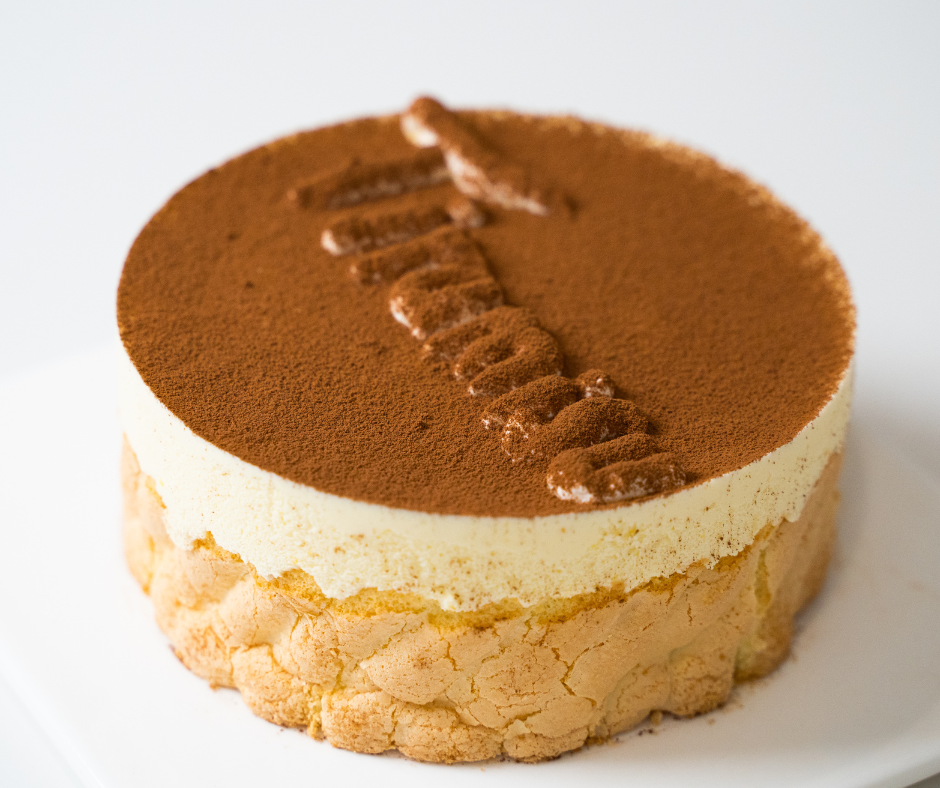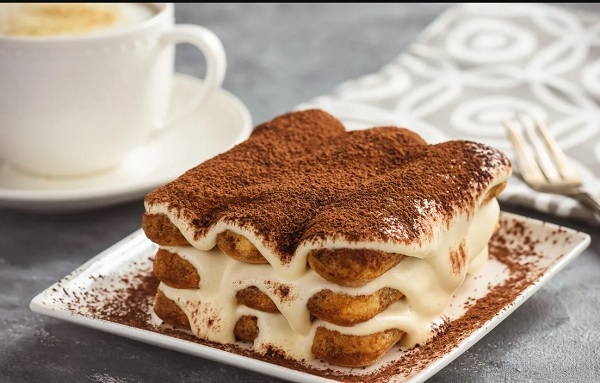Yes, tiramisu typically contains caffeine due to the espresso used in its recipe. The exact amount varies based on the coffee’s concentration.
Tiramisu is a popular Italian dessert known for its rich and layered flavors. It traditionally consists of ladyfinger biscuits dipped in coffee, layered with a whipped mixture of eggs, sugar, and mascarpone cheese, and finished with a dusting of cocoa powder.
The presence of caffeine in tiramisu comes from the espresso or strong coffee that infuses the ladyfingers, providing the dessert with its distinctive coffee flavor. As a beloved finale to meals, tiramisu offers both a creamy texture and a caffeinated boost, making it a favorite for those who appreciate the fusion of dessert and a touch of pick-me-up. Whether enjoyed as a luxurious treat or a complement to an Italian feast, tiramisu’s caffeine content is an integral facet of its character.
:max_bytes(150000):strip_icc()/__opt__aboutcom__coeus__resources__content_migration__serious_eats__seriouseats.com__recipes__images__2017__06__20170526-tiramisu-vicky-wasik-41-00531445710a4dfa83ffc7d3a65abb12.jpg)
The Origin Of Tiramisu
The classic dessert Tiramisu traces its roots to Italy. Born in the Italian region of Veneto, Tiramisu has become a beloved treat worldwide. Historians suggest that it made its appearance around the 1960s. Veneto’s local ingredients played a significant role in shaping this dessert’s unique taste. The use of coffee is pivotal in Tiramisu, lending the dessert its distinct flavor and caffeine content.
Tiramisu’s recipe has evolved over time. Originally, it featured layers of ladyfingers dipped in coffee. Chefs across the globe have since experimented with new techniques and variations. Today’s Tiramisu often includes mascarpone cheese, eggs, sugar, and cocoa powder. Each ingredient contributes to the dessert’s rich and creamy profile. The presence of coffee ensures a caffeine kick in every bite.

Key Ingredients Of Traditional Tiramisu
Mascarpone cheese serves as the silky heart of traditional tiramisu. Its rich texture and delicate sweetness form the creamy layer that tiramisu lovers cherish. Without mascarpone, the dessert simply wouldn’t possess its signature lush mouthfeel.
The presence of espresso in tiramisu cannot be understated. Espresso not only imbues the dessert with its characteristic coffee flavor, but it also introduces caffeine into the dish. Typically, soaked ladyfingers layer the coffee-infused base, creating that welcoming jolt of caffeine many enjoy. This makes tiramisu an indulgence that satiates the palate while providing a mild stimulant effect.
Caffeine Content In Tiramisu
Tiramisu is a popular Italian dessert that often contains caffeine. This caffeine comes from the espresso used to soak the ladyfingers, which are a key component of the dessert. A typical slice of tiramisu may have varying amounts of caffeine, depending on the amount of espresso the ladyfingers absorb.
The caffeine content can also differ based on how the tiramisu is made. Some recipes call for more espresso, while others use less. If the dessert has a strong coffee flavor, it’s likely that it has a higher caffeine level. To estimate how much caffeine is in a slice, consider the number of ladyfingers and the amount of espresso used.
Keep in mind, the caffeine punch in tiramisu can affect those sensitive to caffeine. Let’s be aware of our caffeine intake from such delicious desserts!
Variations Of Tiramisu And Their Caffeine Levels
Tiramisu traditionally contains caffeine, due to espresso or strong coffee as a key ingredient. Those with caffeine sensitivities or preferences can opt for decaf versions. These variations use decaffeinated coffee or espresso to soak the ladyfingers. This switch significantly reduces the caffeine content, making it suitable for everyone.
Exploring alternative recipes also affects the caffeine levels. Some bakers might use a chocolate-based soaking liquid, tea, or even fruit juices. The caffeine content in these alternatives varies — chocolate contains some caffeine, while fruit juices have none. Choosing your soaking liquid is key to controlling the dessert’s caffeine.
Health And Dietary Considerations
Tiramisu is a popular Italian dessert that can affect those with caffeine sensitivity. A key ingredient is espresso or strong coffee, giving tiramisu its distinctive flavor. This means it does contain caffeine. The amount of caffeine in tiramisu can vary. It depends on the recipe and serving size.
For individuals trying to limit caffeine, enjoying tiramisu might be a concern. A small piece could be manageable, but it’s important to know the caffeine content. Some people might feel okay after eating it. Others may need to avoid it before bedtime or completely. Always consider your own body’s reaction to caffeine.

Debunking Myths About Tiramisu And Caffeine
Tiramisu often comes up in conversations about desserts with caffeine. A common belief is that some versions of this popular Italian treat contain no caffeine. Understanding the role coffee plays in tiramisu is key to debunking this myth.
Espresso-soaked ladyfingers are a main ingredient, which naturally adds caffeine to the dessert. The amount of caffeine in tiramisu can vary based on the serving size and the strength of the coffee used. For those sensitive to caffeine or seeking to limit its intake, being mindful of the quantities consumed is essential.
| Serving Size | Approximate Caffeine Content |
|---|---|
| Small (100g) | 30-50mg |
| Medium (200g) | 60-100mg |
| Large (300g) | 90-150mg |
A small serving might have less caffeine than a cup of coffee. Yet, larger portions could lead to increased effects. Choosing the right portion helps manage the amount of caffeine consumed through tiramisu.
Frequently Asked Questions For Does Tiramisu Have Caffeine
How Much Caffeine Is In Tiramisu?
A typical serving of tiramisu contains about 30-50 mg of caffeine, mainly from the espresso and cocoa powder used in the recipe.
Does Tiramisu Keep You Awake?
Tiramisu may keep you awake due to its caffeine content from espresso and cocoa. Its impact varies based on individual caffeine sensitivity.
Will Tiramisu Affect My Sleep?
Tiramisu can affect your sleep due to its caffeine content from coffee and chocolate ingredients. Consider consuming it earlier in the day to avoid disturbances to your sleep cycle.
Does Tiramisu Give You Energy?
Tiramisu can provide a quick energy boost due to its caffeine and sugar content. The dessert’s carbohydrates also offer short-term energy.
Conclusion
To sum up, tiramisu does contain caffeine, primarily from its key ingredient, espresso. As coffee enthusiasts know, this enhances the dessert’s distinctive flavor. So, for those sensitive to caffeine or indulging late at night, consider the timing of your treat.
Enjoy tiramisu mindfully, savoring the taste along with the buzz.

